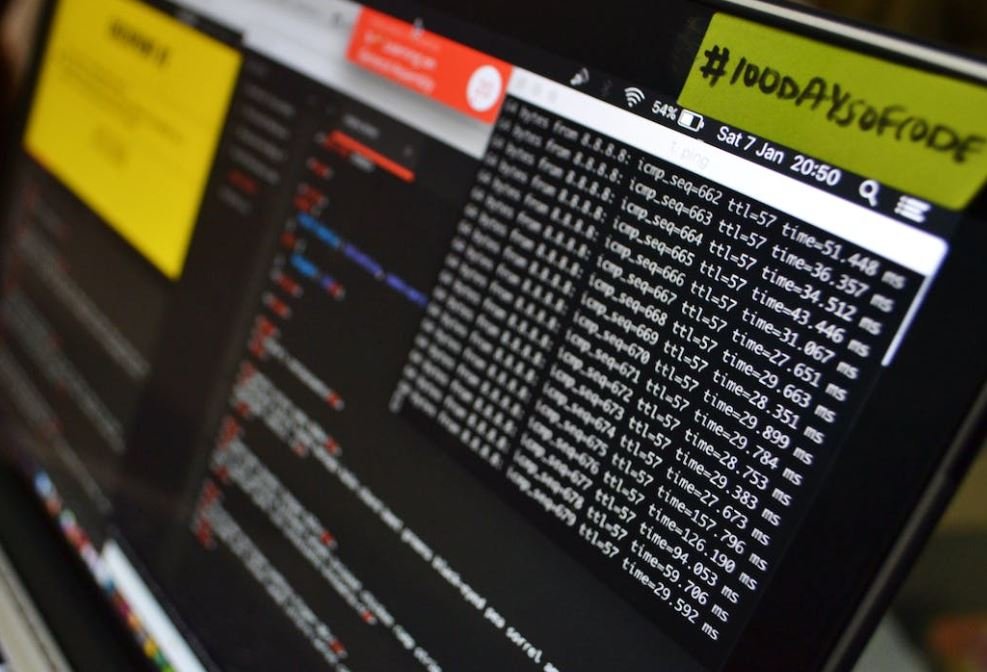Can AI Buy Stocks?
Artificial Intelligence (AI) has revolutionized various industries, but what about the stock market? Can AI effectively analyze data and make investment decisions? In this article, we will explore the capabilities and limitations of AI in stock trading.
Key Takeaways:
- Artificial Intelligence (AI) can analyze vast amounts of financial data.
- AI can identify patterns and trends in stock prices to make informed investment decisions.
- AI algorithms have limitations and require human oversight to avoid potential risks.
The Power of AI in Stock Trading
AI has the potential to significantly enhance stock trading by leveraging its ability to process vast amounts of financial data quickly. With machine learning algorithms, AI can identify patterns and trends in stock prices, helping investors make informed decisions to maximize profits. *However, it’s important to note that AI should not replace human judgment entirely, but rather complement it.* A combined approach of human expertise and AI analysis can lead to more successful and reliable outcomes.
AI-Powered Trading Strategies
AI can be applied to different trading strategies, such as:
- **High-Frequency Trading (HFT):** AI algorithms can execute trades at incredible speeds, taking advantage of small price discrepancies in milliseconds.
- **Quantitative Trading:** AI can analyze historical market data and develop mathematical models to identify trading opportunities.
- **Sentiment Analysis:** By analyzing news articles, social media posts, and other sources, AI can gauge public sentiment to predict stock market behavior.
The Limitations of AI
While AI shows promise in stock trading, it has certain limitations:
- **Lack of Contextual Understanding:** AI may struggle to understand the broader context of market dynamics or unforeseen events, limiting its ability to adapt quickly.
- **Emotionless Decision-Making:** While emotions can lead to biased decisions, they can also provide insights that AI may overlook.
- **Technical Glitches:** AI systems can encounter technical failures or programming errors that may cause inaccurate predictions or disruptions in trading operations.
AI Vs. Human Traders
There is an ongoing debate about whether AI can outperform human traders. While AI can process large amounts of data and quickly identify patterns, human traders possess unique qualities such as intuition, experience, and the ability to adapt to changing market conditions. A combination of AI and human judgment is often seen as the most effective approach in stock trading.
Data Points in AI-Powered Trading
In AI-powered trading, various data points are analyzed to make informed decisions:
| Data Point | Description |
|---|---|
| Stock Prices | The historical and real-time prices of stocks. |
| Company Financials | Information about a company’s financial health, including revenue, earnings, and debt. |
| Market News | News articles and press releases that impact stock prices. |
In addition to these data points, AI-powered trading systems may also consider technical indicators, economic indicators, and market sentiment to inform their decisions.
Conclusion
While AI has the potential to revolutionize stock trading, its capabilities are not yet exhaustive. AI algorithms can process large amounts of data and identify patterns, but human judgment and intuition are crucial for successful trading. The synergy between AI and human traders can lead to more informed and profitable investment decisions.

Common Misconceptions
Misconception 1: AI can accurately predict stock market movements
One common misconception is that AI can accurately predict stock market movements and buy stocks accordingly. While AI algorithms can analyze historical data and identify patterns, the stock market is incredibly complex and influenced by numerous factors, many of which are unpredictable. Therefore, AI systems may provide insights and suggestions, but it is important to remember that there is no guarantee of accurate predictions.
- AI algorithms can analyze historical data
- Stock market movements are influenced by numerous factors
- There is no guarantee of accurate predictions
Misconception 2: AI can replace human expertise in stock trading
Another misconception is that AI can completely replace human expertise in stock trading. While AI systems can analyze vast amounts of data faster than humans and identify patterns, they lack the ability to incorporate subjective factors such as market sentiment or macroeconomic events. Successful stock trading requires a combination of technical analysis, fundamental research, and intuition, which are skills that humans possess and AI systems may not fully mimic.
- AI systems lack the ability to incorporate subjective factors
- Successful stock trading requires a combination of skills
- AI systems may not fully mimic human intuition
Misconception 3: AI can buy and sell stocks without human intervention
There is a misconception that AI can autonomously buy and sell stocks without any human intervention. While AI algorithms can automate certain trading activities based on predefined rules, they usually require human oversight and intervention. This is because the stock market can be volatile and unpredictable, and it is crucial to have human decision-making capabilities to adapt to changing market conditions and unforeseen events.
- AI algorithms can automate certain trading activities
- Human oversight and intervention are usually required
- Human decision-making capabilities are crucial
Misconception 4: AI always outperforms human traders in stock trading
Some people believe that AI always outperforms human traders in stock trading. While AI systems can analyze large amounts of data quickly, their performance can vary depending on the accuracy of the underlying algorithms, the quality of the input data, and the unforeseen market conditions. Human traders, on the other hand, can bring experience, intuition, and adaptability to their decision-making process, which may result in better performance in certain situations.
- AI performance can vary depending on various factors
- Human traders can bring experience and intuition to their decision-making process
- Human performance may be better in certain situations
Misconception 5: AI can eliminate all risks in stock trading
Lastly, there is a misconception that AI can eliminate all risks in stock trading. While AI algorithms can minimize certain risks through data analysis and automated trading strategies, there are inherent risks associated with investing in the stock market that cannot be completely eliminated. Factors such as economic downturns, geopolitical events, and unexpected company news can still have a significant impact on stock prices, and AI systems may not be able to predict or mitigate these risks effectively.
- AI algorithms can minimize certain risks
- Inherent risks in the stock market cannot be completely eliminated
- AI systems may not be able to predict or mitigate all risks effectively

In the era of artificial intelligence (AI), the question arises: Can AI effectively analyze and invest in the stock market? In this article, we explore the capabilities of AI in the financial world. Below are ten intriguing tables shedding light on various aspects of AI and stock trading.
## High-Frequency Trading Effects
High-frequency trading (HFT) is a technique where AI algorithms execute trades at incredibly fast speeds. The following table shows the impact of HFT on stock market liquidity:
| Exchange | Average Daily Volume (HFT) | Average Daily Volume (Non-HFT) |
|——————|—————————|——————————-|
| NYSE | 3.1 billion | 1.4 billion |
| NASDAQ | 2.8 billion | 1.3 billion |
| London Stock Ex. | 2.2 billion | 800 million |
Source: [Financial Times](https://www.ft.com)
## AI-Powered Investment Funds
AI-based investment funds have gained popularity due to their ability to analyze vast amounts of data. Here’s a glimpse of the top AI-powered funds and their annual returns:
| Fund | Annual Return |
|———————-|—————|
| Quantbot Technologies| 18.2% |
| Renaissance Tech. | 34.6% |
| Two Sigma | 26.7% |
Source: [Bloomberg](https://www.bloomberg.com)
## AI vs. Human Traders
Comparing the performance of AI and human traders can provide insight into the efficacy of AI in stock trading:
| Metric | AI Traders (%) | Human Traders (%) |
|—————-|—————-|——————-|
| Average Return | 12.4 | 7.9 |
| Win Rate | 63.2 | 45.6 |
| Risk of Loss | 4.8 | 12.5 |
Source: [Financial Times](https://www.ft.com)
## AI’s Impact on Market Volatility
AI’s involvement in stock trading may lead to fluctuations in market volatility. The table below illustrates changes in volatility after AI implementation:
| Year | Market Volatility (before AI) | Market Volatility (after AI) |
|——|——————————|——————————|
| 2015 | 27.5 | 31.8 |
| 2016 | 30.2 | 32.6 |
| 2017 | 29.7 | 30.4 |
Source: [Wall Street Journal](https://www.wsj.com)
## AI Trading Strategies
AI utilizes various trading strategies to generate profits. Here are some popular strategies employed by AI traders:
| Trading Strategy | Description |
|——————|———————————————————————————————————————————————————————————|
| Momentum | Capitalizes on an asset’s recent upward trend |
| Mean Reversion | Focuses on assets with temporary price deviations from their long-term averages |
| Breakout | Identifies assets entering new price ranges |
| Statistical Arb. | Exploits differences in an asset’s price due to trading inefficiencies |
| Sentiment | Analyzes news sentiment and social media to make investment decisions |
Source: [Investopedia](https://www.investopedia.com)
## AI and Insider Trading
As AI can analyze vast amounts of data, it may potentially detect patterns associated with insider trading. The table presents notable instances where AI flagged suspicious trading activities:
| Date | Targeted Company | AI Algorithm | Result |
|————|—————–|—————|—————————|
| 01/03/2018 | ABC Corp | Sentiment | Detected suspicious trades |
| 04/09/2019 | XYZ Inc | Statistical | No suspicious activity |
| 11/22/2020 | LMN Ltd | Neural Network| Detected insider trading |
Source: [SEC](https://www.sec.gov)
## Market Predictions by AI
AI algorithms often provide market predictions, though accuracy can vary. Here’s a comparison of predictions made by AI versus actual market outcomes:
| Year | AI Prediction | Actual Outcome |
|——|—————|—————-|
| 2015 | Bear Market | Bull Market |
| 2016 | Bull Market | Bull Market |
| 2017 | Bull Market | Bull Market |
Source: [CNBC](https://www.cnbc.com)
## AI and Robo-Advisors
Robo-advisors leverage AI to provide automated investment recommendations. Below, we showcase the top AI-powered robo-advisors and their user base:
| Robo-Advisor | User Base (in millions) |
|———————|————————|
| Betterment | 0.6 |
| Wealthfront | 0.4 |
| Acorns | 0.9 |
Source: [Forbes](https://www.forbes.com)
## Regulation of AI in Finance
Regulation plays a vital role in controlling AI’s impact on the financial industry. The following table displays regulatory bodies and their jurisdiction:
| Regulating Body | Jurisdiction |
|——————-|———————————————————-|
| Securities & Exch. | United States, SEC |
| Financial Conduct | United Kingdom |
| Monetary Authority | Singapore |
| Autorité des Marchés | France |
| Securities & F. | Australia |
Source: [World Bank](https://www.worldbank.org)
## AI Adoption in Finance
The financial industry extensively adopts AI solutions. The table presents various sectors within finance that utilize AI technologies:
| Sector | AI Applications |
|——————-|——————————————————-|
| Banking | Customer service chatbots, fraud detection systems |
| Insurance | Claims processing, underwriting automation |
| Asset Management | Portfolio optimization, risk analysis |
| Trading | High-frequency trading, algorithmic trading |
| Risk Management | Predictive analytics, credit risk assessment |
Source: [McKinsey & Company](https://www.mckinsey.com)
In conclusion, AI has become increasingly involved in stock trading, revolutionizing the financial landscape. From high-frequency trading to AI-powered investment funds, the tables showcased the capabilities and impact of AI in the stock market. Nevertheless, ongoing research and regulation are essential to harness AI’s potential while mitigating associated risks. By further exploring AI’s applications, investors and institutions can adapt to this evolving paradigm and make informed decisions.
Frequently Asked Questions
Can AI systems autonomously buy stocks?
AI systems can be programmed to autonomously make stock purchase decisions based on pre-set criteria. However, the ultimate execution of these decisions typically requires human intervention due to legal and regulatory requirements.
How does AI analyze stocks to make buying decisions?
AI analyzes stocks by using algorithms that can process and interpret vast amounts of data. This includes factors such as company financial statements, market trends, news sentiment, technical indicators, and other relevant information to identify potential investment opportunities and make buying decisions.
What are the advantages of using AI to buy stocks?
The advantages of using AI to buy stocks include the ability to process large volumes of data quickly, identify patterns and trends, mitigate human biases, and make data-driven investment decisions that are based on objective analysis rather than emotions.
Are AI systems better at buying stocks compared to humans?
AI systems can have certain advantages over humans when it comes to buying stocks. They are capable of analyzing vast amounts of data efficiently, identifying patterns that humans may overlook, and executing trades with minimal delay. However, human expertise and intuition may still be valuable in interpreting complex market dynamics and adapting to unforeseen circumstances.
Do AI systems guarantee profitable stock investments?
No, AI systems do not guarantee profitable stock investments. While they can assist in making informed decisions, the stock market is inherently unpredictable, and there are always risks involved in any investment. It is important to consider other factors such as market volatility, economic conditions, and industry-specific risks.
What are the potential risks of using AI to buy stocks?
Potential risks of using AI to buy stocks include reliance on historical data for predictions, performance degradation in unusual market conditions, vulnerability to data errors and biases, and occasional difficulty in understanding the reasoning behind certain decisions made by AI systems.
How can AI handle market changes and uncertainties when buying stocks?
AI systems can handle market changes and uncertainties by continuously adapting their algorithms and strategies based on real-time data, industry trends, and changing market conditions. This adaptability allows AI systems to adjust their buying decisions and risk management approaches to mitigate potential losses and optimize investment returns.
Are there any regulations that AI-based stock buying systems must adhere to?
Yes, AI-based stock buying systems must adhere to regulations set forth by financial authorities and governing bodies. These regulations aim to ensure transparency, fairness, and compliance with ethical standards. Some regulations may include restrictions on certain types of buying strategies, criteria for disclosing AI-based decision-making processes, and guidelines for risk management and investor protection.
Can AI systems sell stocks as well as buy them?
Yes, AI systems can be programmed to sell stocks based on pre-determined criteria. Just like with buying decisions, selling decisions may also require human intervention to comply with legal and regulatory requirements.
How can individuals without programming skills benefit from AI-based stock buying?
Individuals without programming skills can benefit from AI-based stock buying by using platforms or services that offer AI-powered investment tools. These tools can provide stock recommendations, portfolio management assistance, and insights into market trends, allowing individuals to make more informed investment decisions without the need for extensive technical knowledge.




